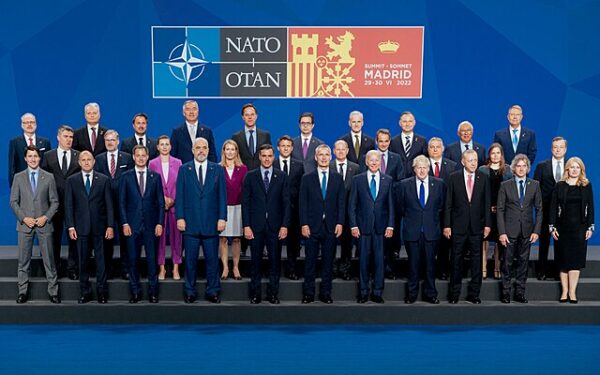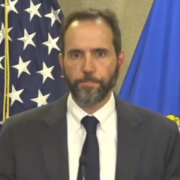
One of Donald Trump’s major goals for his second term will be to fix the military and reform the Department of Defense. Last week, the president-elect made that clear when he announced Pete Hegseth as the next secretary of Defense.
NPR reported that “President-elect Donald Trump’s choice of Pete Hegseth, a Fox News host and former National Guard soldier, for secretary of defense is being met with disbelief and outrage among some members of Congress and former military officers.
He served in Iraq and Afghanistan and left the Army National Guard as a major in 2021. Beyond his inexperience, Trump’s selection of Hegseth has also renewed scrutiny of his political and religious views, his advocacy for soldiers accused of war crimes, and his aggressive criticism of the military he would be leading. Many people with experience in defense and foreign policy fear that, if confirmed, Hegseth would politicize the officer corps.
Reaction to the news was swift and cutting. One former senior military official who wished to remain anonymous to speak freely about the subject said that the only qualifying quality for Hegseth seemed to be loyalty to Trump, and that the pick was embarrassing, although the language used was more colorful. Another official on the Hill, who was not authorized to speak publicly, said he had to Google Hegseth’s name.”
One of Hegseth’s stated goals is to tear out “wokeness” in the military while holding generals who have failed accountable. Now, according to members of Trump’s transition team, that may include court-martialing senior U.S. military officers involved in the 2021 withdrawal from Afghanistan, according to NBC News.
The Trump transition team is compiling a list of senior current and former U.S. military officers who were directly involved in the withdrawal from Afghanistan and exploring whether they could be court-martialed for their involvement, according to a U.S. official and a person familiar with the plan.
Officials working on the transition are considering creating a commission to investigate the 2021 withdrawal from Afghanistan, including gathering information about who was directly involved in the decision-making for the military, how it was carried out and whether the military leaders could be eligible for charges as serious as treason, the two sources said.
“They’re taking it very seriously,” the person with knowledge of the plan said.
President-elect Donald Trump has condemned the withdrawal as a “humiliation” and “the most embarrassing day in the history of our country.”
Watchdogs have deeply criticized the withdrawal from Afghanistan.
In 2022, for example, The New York Post reported that “the report by the Special Inspector General for Afghanistan Reconstruction (SIGAR) found the withdrawal announced by President Biden in April of that year “destroyed the morale of Afghan soldiers and police” who had “long relied on the US military’s presence” for their own protection — as well as to ensure the Kabul government paid their salaries.
Watchdog John F. Sopko also faulted the 2020 Doha Agreement reached between the Trump administration and the Taliban for instilling “a sense of abandonment” in both the Afghan forces and public at large.
‘The US-Taliban agreement gave the Taliban its core demand: the complete withdrawal of US and coalition troops, as well as contractors,’ the report stated. ‘The Afghan government, a nonsignatory to the agreement, was excluded from negotiations, legitimating the Taliban on the world stage and further undercutting the Afghan government’s credibility, which many Afghans already viewed as illegitimate.’
Meanwhile, the Western-backed Kabul government, led by President Ashraf Ghani, believed the US would not complete its pullout until an all-Afghan peace deal had been agreed. According to SIGAR, Ghani ‘read the [Doha] agreement as the conditions-based peace deal it purported to be, not the calendar-based withdrawal deal that it had become.’”
The prospect of legal action against military leaders would be a major change to the current status quo of the military. Critics argue that commanders acted under direct orders from President Biden, complicating the legal grounds for any punitive measures. Supporters, however, are that the move to court-martial officers could be seen as a reconfiguring of military accountability and hierarchy, helping restore civilian control of the military.
[Read More: Pelosi Likely Mad About The Talk Behind Her Back]











